Hackney Markets and Street Trading Fees and Charges 2026
Overview
Why We Are Consulting on Fees and Charges
Hackney Council is consulting on proposed changes to the fees and charges for its markets, shop fronts and street trading licences.
Why now?
Fees and charges have not been reviewed since 2020 with costs associated with delivering a successful markets service increasing across a number of areas.
What is changing?
- Revised pitch fees across all sites to reflect actual service delivery costs.
- Greater increases for food and fruit/vegetable traders, where waste generation and disposal costs are greatest.
- Introduction of annual adjustments linked to North London Waste Authority (NLWA) charges.
- Introduction of annual adjustments linked to inflation, the Consumer Price Index (CPI).
- Modernisation of the payment system, phasing out the current 8-week arrears model to ensure traders are paying fairly and in line with modern business practice.
- Retention of affordable temporary pitches, youth trader schemes and hardship support.
What does this mean in practice?
- Most fees are proposed to increase between 7% and 20%. For food and waste-intensive categories, higher adjustments are proposed to ensure that costs are shared fairly and proportionately to the waste generated.
- Hackney’s markets will remain among the most affordable in London, even after these changes.
- Any surplus income will be reinvested directly into markets, facilities, and trader support — not used for other services.
How can you have your say?
This consultation runs from 4 September to 15 October 2025. You can:
- Complete the online survey
- Attend drop-in sessions (listed below)
- Request a paper copy or translation (details below)
Your feedback will be considered before any final decision is made.
Why are you being consulted?
The Council is reviewing its current fees and charges to ensure they remain fair, transparent, and legally compliant under Section 32 of the London Local Authorities Act 1990 (LLA 1990). This legislation requires anyone displaying goods for sale or providing services for profit in public spaces—such as market stalls, shop fronts, or mobile vehicles trading from fixed positions—to hold a street trading licence.
The law makes clear that while the Council provides the land for trading, the costs of running and managing markets—such as waste collection, electricity, storage, licensing administration, and compliance—must be covered by licence fees rather than general taxpayers. This ensures that the cost of operating markets and street trading is shared fairly by those who benefit directly from them.
This consultation builds on the first stage held in November–December 2024, where many of you shared your feedback. At that time, we paused the introduction of new fees planned for April 2025 so that we could explore ways to reduce costs, particularly around waste and electricity. We are now returning with updated proposals that reflect those discussions and the steps taken since.
The last full review of fees and charges took place in 2019, with changes implemented in April 2020. Since then, the Council has faced increasing financial pressures, including rising inflation, higher energy costs, and reductions in central government funding. To support small and micro businesses, we chose not to pass these costs on during the pandemic and recovery years, and no CPI uplift was applied in 2021/22. However, this approach is no longer sustainable.
From 1 January 2026, we are therefore proposing to update fees and charges to:
- Ensure the service covers its costs in line with legislation.
- Avoid a subsidy from local taxpayers.
- Generate a small surplus to reinvest and support traders in line with our Markets Strategy 2024–29 and the Mayor’s priorities for supporting local businesses and communities.
This consultation sets out the proposed changes for both permanent and temporary traders, shop front licences, and all street trading sites. It also explains the statutory process we must follow under the LLA 1990: providing notice, inviting comments, and considering all responses before finalising any decisions.
We want to be clear: these are proposals. They will only be finalised after we have listened carefully to feedback from traders, residents, and other stakeholders. Our goal is to ensure Hackney’s markets and street trading remain vibrant, inclusive, and financially sustainable for the future.
What are the proposals?
Modernising Payments Process
Across both public and private sectors, it is now standard practice for services to be paid for in advance or at the point of delivery. In Hackney, the current system allows traders to build up to eight weeks of unpaid trading fees before enforcement action is taken. While this approach has historically given traders flexibility, it is becoming increasingly difficult to manage, creating extra administrative work (equivalent to 0.75 Full Time Equivalent), straining enforcement resources, and exposing the Council to unnecessary financial risks.
Other London councils such as Southwark, Camden, and Lambeth, as well as private sector operators, already require payment ahead of time or in real-time. To remain fair, financially sustainable, and in line with best practice, Hackney must now move towards a similar model.
Managing arrears also makes it harder to predict income and relies heavily on complex payment plans. With the rising costs of running the Markets Service, continuing with this system is no longer sustainable. By adopting a modernised, up-front payment approach, we can provide greater financial certainty for both traders and the Council, reduce administrative burdens, and create a level playing field for all.
Supporting Traders in Transition
We recognise that moving away from an arrears-based model will require adjustment. To make the transition as fair and manageable as possible, we propose:
- Calculating any existing arrears (up to eight weeks per trader) and recovering these gradually over 11 months in 2026/27, alongside standard trading fees.
- From 2027/28, all permanent licence holders will move to real-time or advance payment.
- Temporary traders will continue to have flexibility — they will be able to pay on the day where needed, but also benefit from new options to pre-book and pay up to a week in advance, ensuring certainty of pitch allocation and reducing queues or delays on-site.
The Markets Service is also investing in a new online licensing and booking system, designed to make paying in advance easier, more flexible, and accessible. This will help traders plan ahead and reduce the reliance on cash or in-person payments.
Benefits of the New Model
- Improves financial planning and forecasting, reducing reliance on subsidies.
- Provides a clear and consistent framework that applies equally to all licence holders.
- Reflects modern practices across London boroughs and commercial markets.
- Gives traders more certainty about pitch availability and reduces last-minute payment stress.
This step-by-step change balances the need to modernise with a clear recognition of the pressures small and micro-businesses face. The service will continue to offer support and guidance to help traders adjust, with communications provided well in advance of implementation.
Electricity
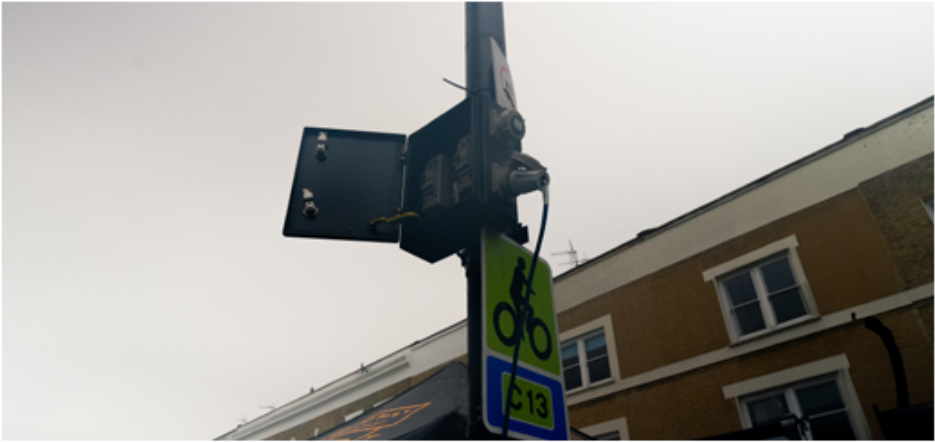
Electricity wired from a street light is used to power lighting for gazebos
Electricity is one of the most critical resources for market traders, particularly those operating in food and drink. The Council currently provides power at a number of street trading locations, including market lighting to support safe trading during the winter months.
At present, traders do not pay for electricity. However, the Council incurs rising costs, making this one of the Markets Service’s largest areas of expenditure. In 2023/24, electricity costs totalled almost £250,000, representing an increase of £154,000 in a single year compared with 2022/23. These pressures have been further exacerbated by inflation and wider cost-of-living increases. Despite these rises, the Council has continued to absorb these costs since 2020/21 to protect traders during the pandemic and recovery period. This position is, however, no longer financially sustainable.
Feedback from traders has also highlighted challenges with the reliability of some existing supply points, which can be prone to tripping. At Broadway Market, for example, significant investment in new electrical bollards would be required to modernise provision, but the estimated cost of up to £100,000 per site, coupled with the disruption caused by excavation works, makes this option unaffordable in the current climate.
To ensure electricity provision remains reliable and affordable, the Council is actively exploring alternative energy solutions. These include the potential introduction of large rechargeable battery packs that can be leased to traders, providing greater flexibility. Traders would pay a separate, transparent fee for use of this service, with responsibility for repair or replacement in cases of damage. Traders will also retain the option to use their own independent energy sources, such as gas or personal battery packs, should they prefer.
Going forward, electricity charges will be separated out from standard pitch fees, ensuring that only those who directly use this resource contribute to its costs. This will establish a fairer and more sustainable pricing model, supporting the long-term viability of the service while continuing to give traders choice and flexibility in how they power their businesses.
Street markets storage container hire
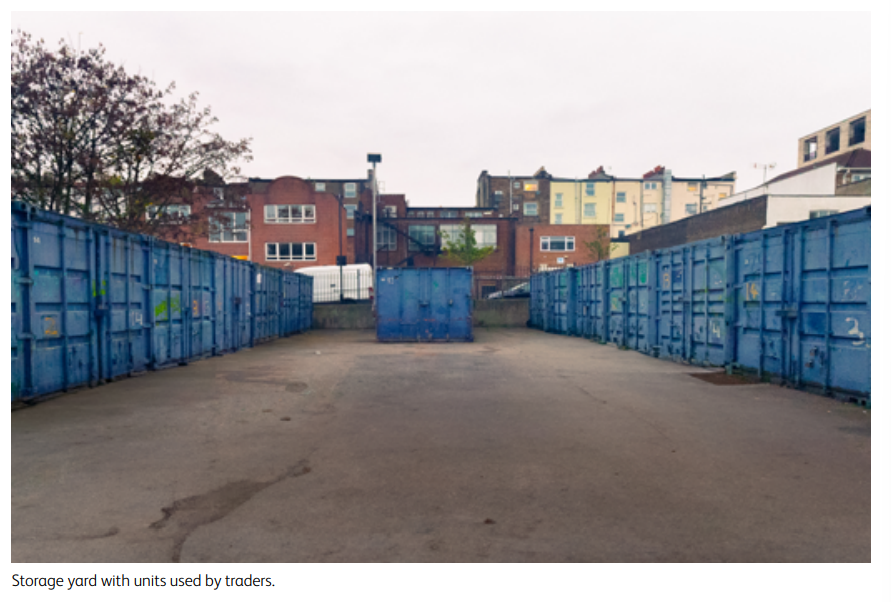
Hackney is one of the few councils in London that provides on-site storage directly within its markets — a service which traders consistently highlight as essential to running and sustaining their businesses. These facilities provide a highly cost-effective solution per square metre and are designed to support both established and new traders by reducing overheads and improving operational efficiency.
On-site storage also contributes to the Council’s wider Climate Action Plan commitments by reducing the number of diesel vans entering and exiting the borough each trading day. With more traders able to securely store goods, equipment, and stock close to their pitch, there is a tangible reduction in transport emissions and congestion around market sites.
The service continues to expand its storage offer in response to trader demand. Despite inflationary pressures on container hire, electricity, cleaning, and maintenance, the Council has consistently operated this part of the service on a cost-neutral basis to keep costs affordable for businesses. The current proposal is for a 20% increase in hire fees. This reflects unavoidable increases in costs while ensuring the service remains sustainable and able to grow capacity where needed.
Benchmarking demonstrates that Hackney remains competitively priced when compared to central London and other local authority-run operations. Many other boroughs do not provide storage facilities at all, or only offer small garage units off-site which are significantly less practical for daily market use. Hackney’s approach provides traders with secure, well-located facilities that directly support business continuity and growth.
Table 1 - Proposed street markets storage container hire fees

Chart 1 - Benchmarking of storage container hire fees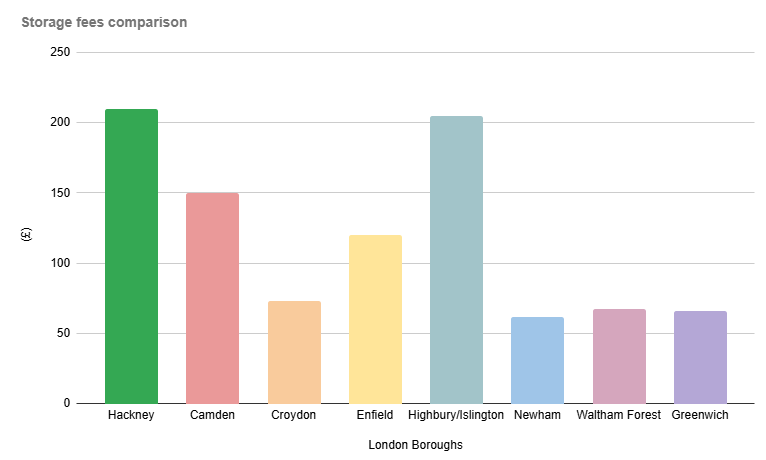
Stall set-up / Equipment & Maintenance

Stall set-up officer dismantling market stalls in Broadway Market.
Since insourcing the stall set-up operations, the service has seen clear benefits in both quality and efficiency. Previously, these functions were delivered by non-contracted third-party operators, often carrying out unregulated activities that created risks and inconsistencies. Bringing the operation in-house has provided a professional, accountable team of trained operatives, improving reliability, safety, and compliance.
The in-house model has supported significant growth in occupancy, with demand for stalls rising year-on-year. Operatives are now trained not only to set up and dismantle markets but also to support large-scale events, ensuring these services can be costed into new operations from the outset. This provides confidence that the service can expand sustainably while maintaining high standards.
Other councils have looked to Hackney’s insourcing approach as a model of best practice, recognising that it delivers greater value for money, consistency, and a reduced overall cost compared with previous regimes. The service now provides a much-needed, well-regulated infrastructure for new and existing traders alike, underpinned by the provision of appropriate uniforms and safety equipment to protect staff.
These measures ensure that Hackney’s markets continue to grow effectively while providing safe, efficient, and scalable operations. As the service develops further, the costs of stall set-up, maintenance, and storage are being carefully factored into future fee proposals to ensure sustainability and fairness.
Table 2 shows the additional costs (overtime) associated with the set up and dismantlement of the markets amongst other duties such as cleaning out the storage yards, setting up events, cleansing of storage yards and repairs and maintenance of our stall set up equipment.

The extra costs mentioned earlier are due to the overtime incurred over the past two financial years, and future expenses may vary based on inflation.
Since we brought the stall setup team in-house, we've had to increase our team size to ensure we can fully set up and take down the branded gazebos at Ridley Road Market. When we insourced this service, Ridley Road Market wasn’t part of the initial plan, as the Good Growth Funding came later. To provide a reliable and consistent service for the traders at Ridley Road Market, the Council has decided to establish three full-time positions to enhance efficiency regarding both costs and time. While this will address the overtime issues, there will be a slight increase in costs to support the Market setup.
Waste management
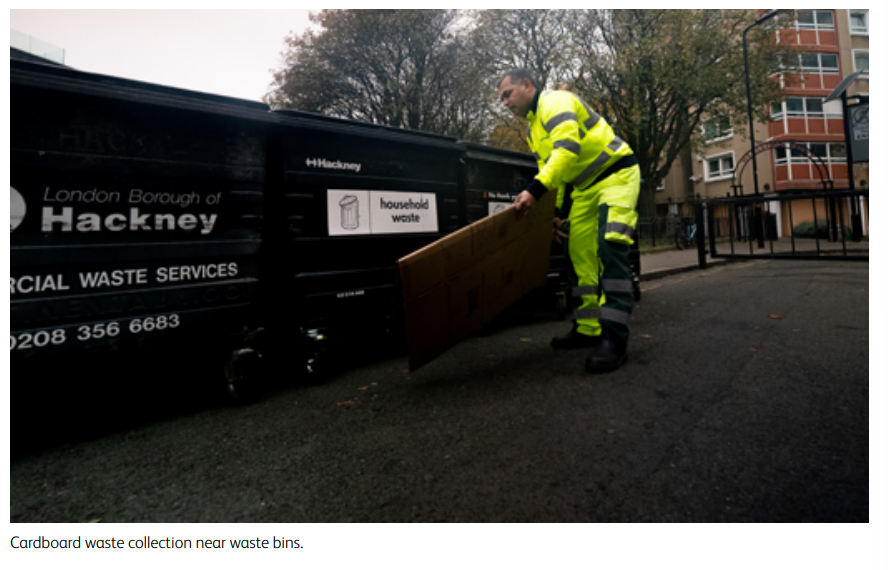
Effective waste management is essential to the smooth running of markets and street trading. To maintain high standards, the service invests in regular collections, cleansing, and infrastructure — including additional bins, sweepers, daily environmental operatives, and end-of-day spray cleaning. These measures are vital to ensuring safe and welcoming trading environments, though they also represent a rising area of expenditure for the Markets Service.
Since the last fee review in April 2020, waste management costs have increased annually. During the COVID-19 pandemic, only essential businesses could operate, but the Markets Service still covered all waste management costs for the markets to continue operating. Recently, after feedback from the first phase of consultation in November 2024 and pending the second phase, the Waste Management Service decided to limit the charge to the Markets Service to £667,670 for 2024/25. This shows our commitment to support traders while also acknowledging rising costs.
Table 3 below sets out the updated breakdown of waste costs by market location for the current financial year.
Table 3 - breakdown of waste costs by market location
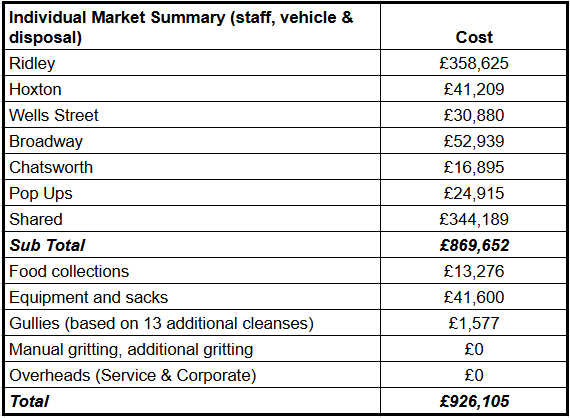
The Markets Service has implemented annual inflationary increases since April 2020 but this has not fully covered the waste management costs each year.
Waste management costs have increased by 39% from the current charge to the new charges (£667,670 to £926,105). To manage these increased pressures fairly and sustainably, the Council is proposing a slightly higher uplift for food and fruit & vegetable stalls (10%) compared with non-food categories (6.7%). This reflects the greater volumes of waste typically generated by food trading and helps ensure that overall costs are proportionately shared. These changes are designed to support the Markets Service in meeting its legislative requirement to operate on a cost-recovery basis, balancing the account at the end of each financial year.
Waste Costs and Future Management
The recent rise in waste costs is linked to the continued growth and success of Hackney’s markets. Occupancy across all sites — including Ridley Road, our street trading sites, and the introduction of Sunday trading at Broadway Market — has increased by double digits since the last consultation in November 2019. Naturally, more activity means more waste, and additional cleansing is required to maintain the high standards expected by traders, residents, and visitors.
For example, while waste cleaning usually includes quarterly gully maintenance, Broadway Market now requires gully cleans approximately every eight weeks due to oil, fat and other waste being disposed of into the drainage system. In addition, higher littering and waste generation in the adjacent parks has required extra resources and infrastructure on both Saturdays and Sundays to minimise impacts on the public realm. Similar additional interventions have also been required at Ridley Road, Clifton and Leonard Street. These actions ensure that markets remain safe, hygienic, and welcoming for everyone.
Although these interventions have been effective, the additional costs highlight the need for a more sustainable approach going forward. To protect the long-term financial stability of the Markets Service, we are therefore consulting on proposals that would ensure waste costs are more fairly distributed and fully covered within pitch fees.
The proposals are:
- Adjusting fees for fruit and vegetable/street food traders by 10%–20%, depending on location and the amount of waste generated.
- Introducing green bin fees specifically for fruit and vegetable/street food categories.
- Empowering Market Officers to issue Fixed Penalty Notices (FPNs) where traders are found contaminating gullies, in line with existing enforcement powers.
- With the introduction of the North London Waste Authority (NLWA) charge, any additional increase in waste management costs will need to be consulted with licence holders through the formal consultation process.
- Traders will no longer be allowed to wash or rinse their cooking utensils in the market. They must take their soiled equipment with them and clean them elsewhere to avoid accumulation of grease and fat in the drains and gullies.
Broadway Market
To ensure fees remain fair and reflect the true cost of service delivery, we are proposing modest increases for non-food traders, alongside slightly higher increases for food and street food stalls.
- Non-food stalls (non-fruit/vegetable and non-street food): Fees will rise by up to 6.7%, rounded to the nearest 50p.
- Fruit, vegetable, and street food stalls: Fees will rise by 10%, rounded to the nearest 50p.
The slightly higher uplift for food-based stalls reflects two key factors:
- Additional resources required – including stall set-up, equipment maintenance, and cleansing.
- Changes in national legislation – from 31 March 2025, new Government regulations require businesses to separate dry recycling and food waste by law. This will increase the cost of collection and management, particularly for markets with a high proportion of food waste.
These adjustments ensure that Hackney’s Markets and Street Trading Service remains compliant with legislation, financially sustainable, and able to continue providing a high-quality service for all traders.
The proposed fee increases are summarised in Table 4.
Table 4 - Proposed fees and charges for Broadway Market
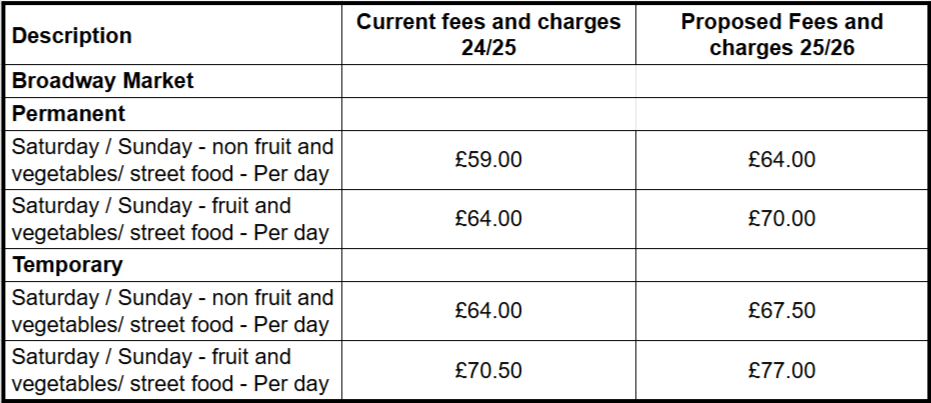
Chart 2 presents benchmarking data from other London Councils with markets comparable in size, scale, and footfall to Broadway Market.
While fees for fruit, vegetables, and hot food commodities have increased, the data shows that Hackney’s charges remain competitive and below the levels set by many other boroughs operating similar high-footfall markets.
This demonstrates that Hackney continues to offer value for money for traders, while ensuring fees are aligned with the true costs of delivering high-quality services and meeting new waste and environmental legislation.
Chart 2 - Destination Market, pitch free comparison
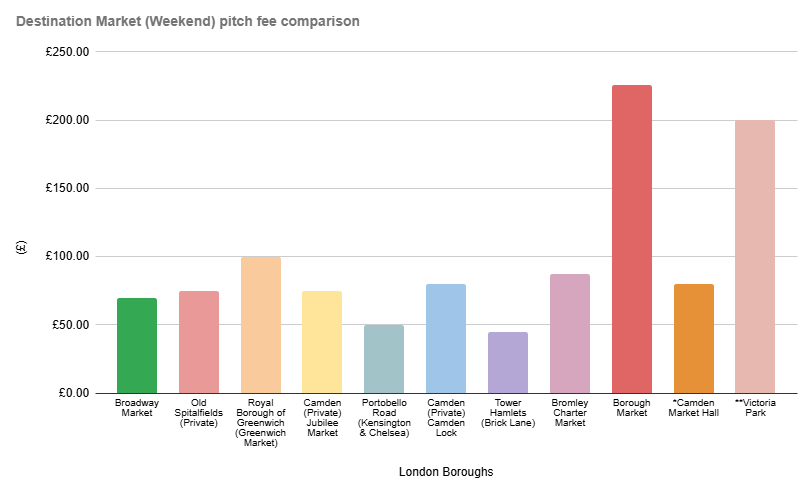
Table 5 shows that our fees are still competitive in comparison to other destination markets in London
Table 5 - Weekend Daily Rate
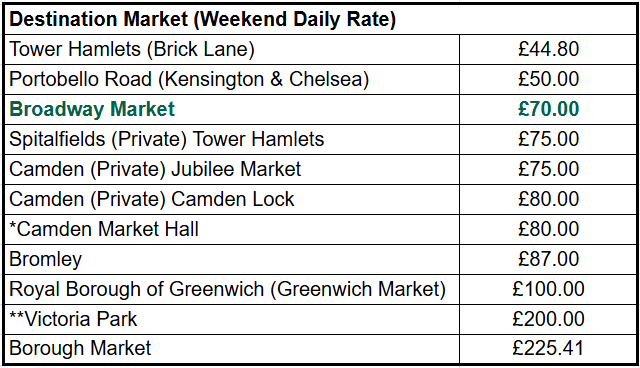
*Camden Market Hall includes pitch fee of £80 plus % commission is taken from the trader sales each trading day
**Victoria Park includes a pitch fee of £100 plus % commission is taken from the trader sales each trading day
Chatsworth Road Market
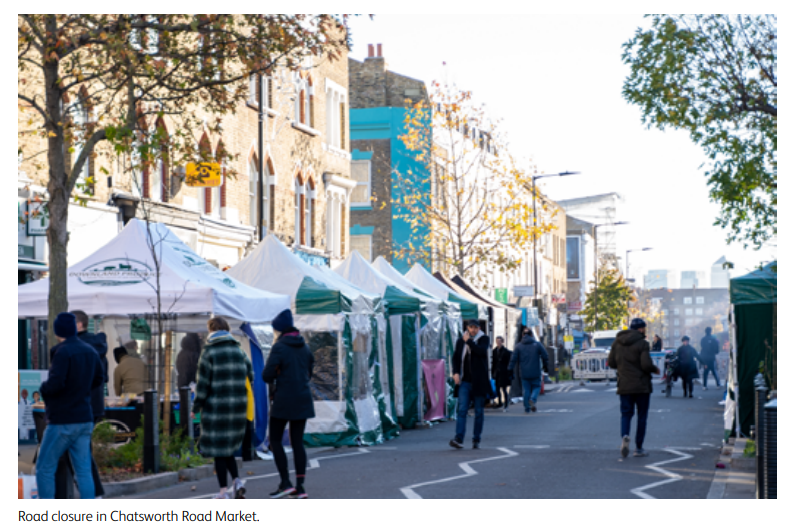
Although the Council has made significant progress in increasing occupancy at Chatsworth Road Market over the past year, the market is still currently operating at a financial loss. This is because current pitch fees do not fully cover the costs of running the market, which include the Stall Markets Management Team, onsite Market Officers, a weekend Social Media Officer, Enforcement Officers, and Waste Management.
To ensure the market remains viable and continues to grow, we are proposing the following adjustments:
- For non-fruit, vegetable, or street food stalls, fees will rise at 6.7% rounded to the nearest 50p.
- For fruit, vegetable, and street food stalls, a 10% increase (rounded to the nearest 50p) is proposed. This reflects the higher waste management costs associated with food-based trading.
These changes are intended to ensure that the market is placed on a more sustainable financial footing, while continuing to support a diverse range of traders and goods for local residents.
The proposed fee increases are summarised in Table 6.
Table 6 - Proposed fees and charges for Chatsworth Road Market
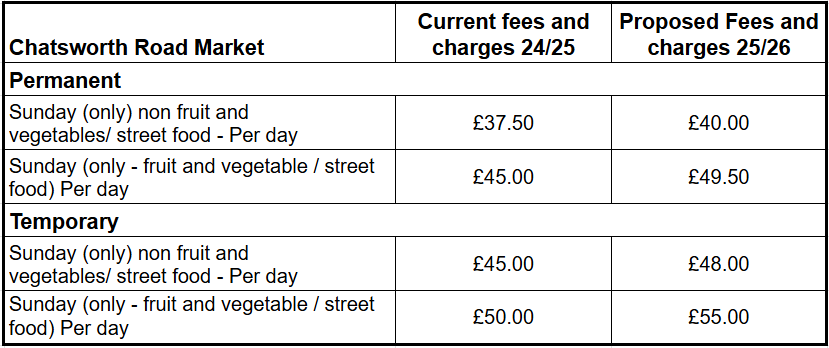
Clifton Street Market
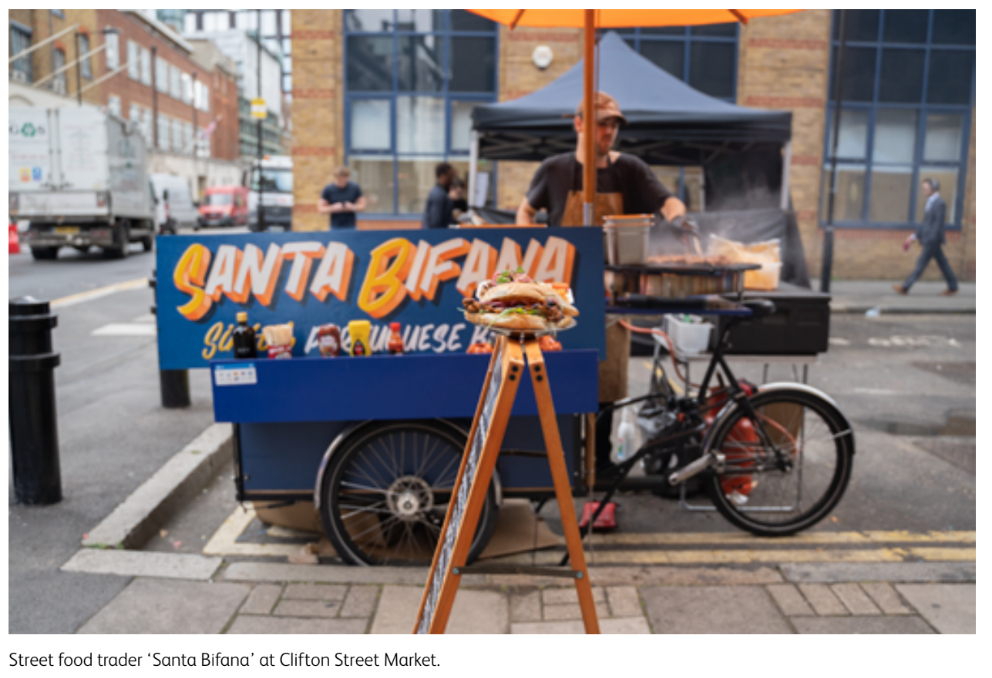 Clifton Street Market was first introduced as a trial during the Covid-19 pandemic to give street food traders an additional opportunity to grow their businesses. Since then, the market has thrived and is now operating at full capacity, becoming a popular destination for residents and visitors.
Clifton Street Market was first introduced as a trial during the Covid-19 pandemic to give street food traders an additional opportunity to grow their businesses. Since then, the market has thrived and is now operating at full capacity, becoming a popular destination for residents and visitors.
To ensure this success is sustained in the long term, we are proposing modest fee increases for fruit, vegetable, and street food stalls. These changes will help cover the rising maintenance and waste management costs associated with running a busy, food-focused market, while ensuring the market continues to offer good value for traders.
The proposed changes are set out in Table 7.
Table 7 - Proposed fees and charges for Clifton Street Market

Benchmarking against other markets shows Hackney remains competitively priced compared to similar markets, as shown in Chart 3.
Chart 3 - Benchmarking of Street Trading Sites (City Market) 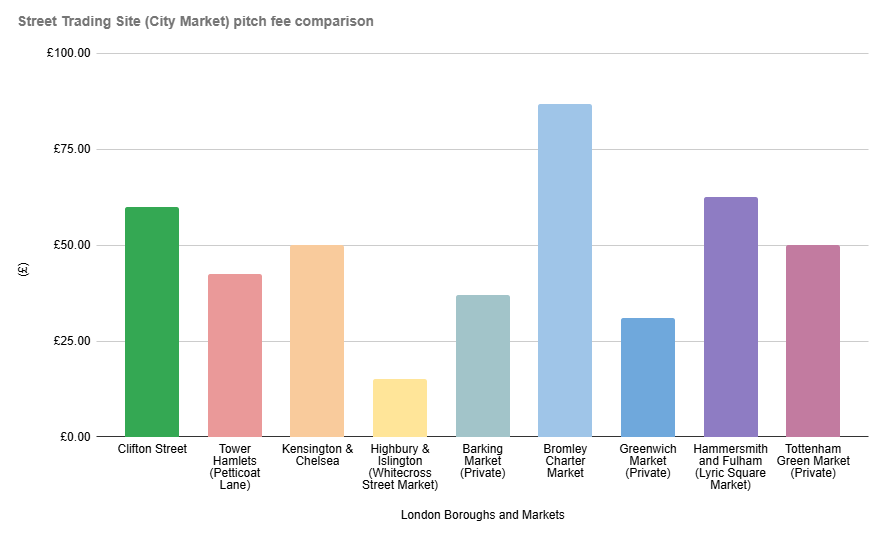
Hoxton Street Market
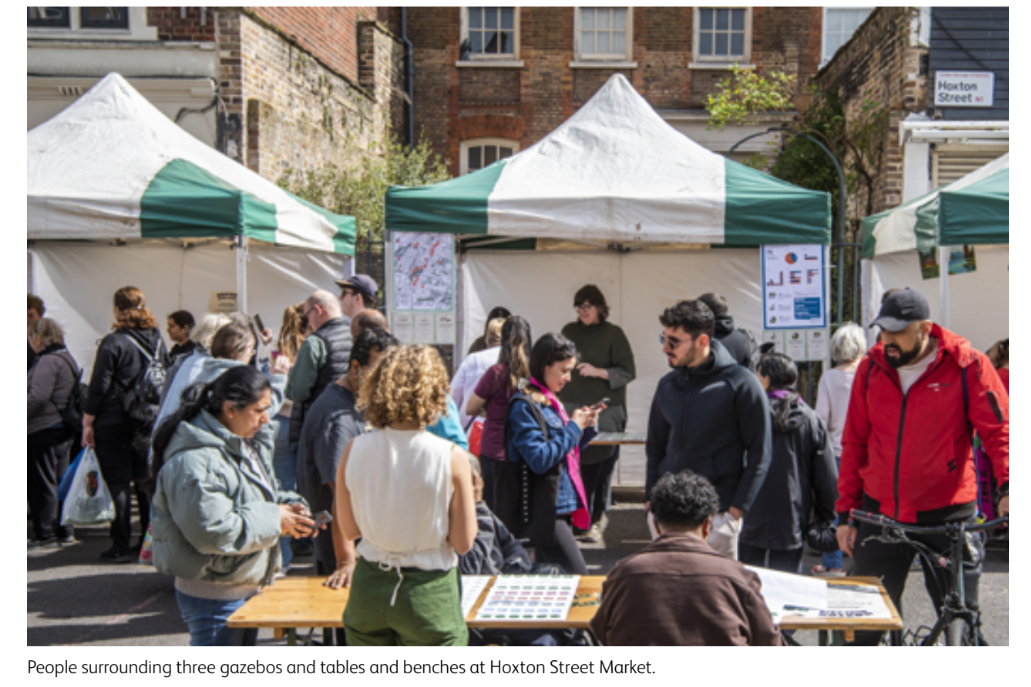
Hoxton Street Market continues to play an important role in Hackney’s market offer, operating as a street food site during the week and as a full market every Saturday. To build on this success, the Council is investing in new gazebos and exploring opportunities to broaden the market’s appeal. Planned developments include a dedicated crafts corner for artisan traders and a trial of London’s first youth market, aimed at attracting younger entrepreneurs and new audiences to this historic location.
To ensure the market remains financially sustainable, we are proposing a 6.7% inflation-only adjustment (rounded to the nearest 50p) for non-fruit, non-vegetable, and non-street food stalls. This modest uplift will help maintain affordability while supporting a diverse range of products.
For fruit, vegetable, and street food stalls, a slightly higher increase is proposed to reflect the additional costs of waste management linked to food operations. This ensures costs are shared fairly and the market continues to thrive as a welcoming and sustainable trading environment.
The proposed changes are set out in Table 8.
Table 8 - Proposed fees and charges for Hoxton Street Market
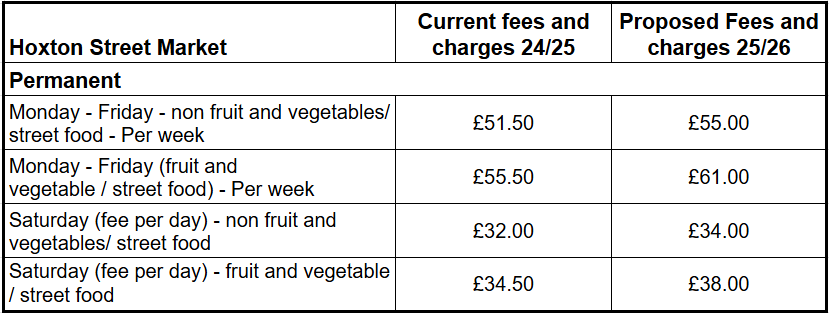
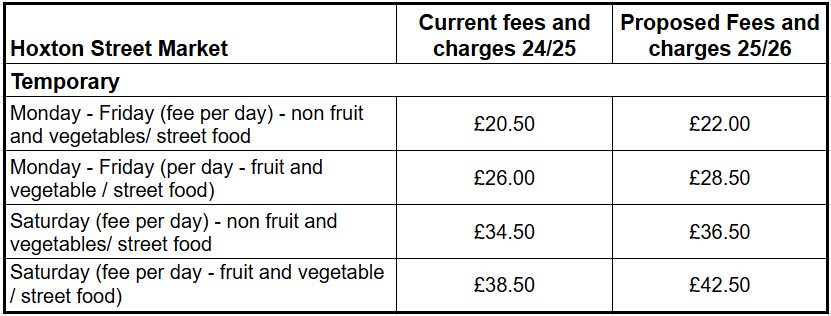
Benchmarking against other markets shows Hackney remains competitively priced compared to similar markets, as shown in Chart 4.
Chart 4 - Benchmarking of Local Markets (Monday to Friday)
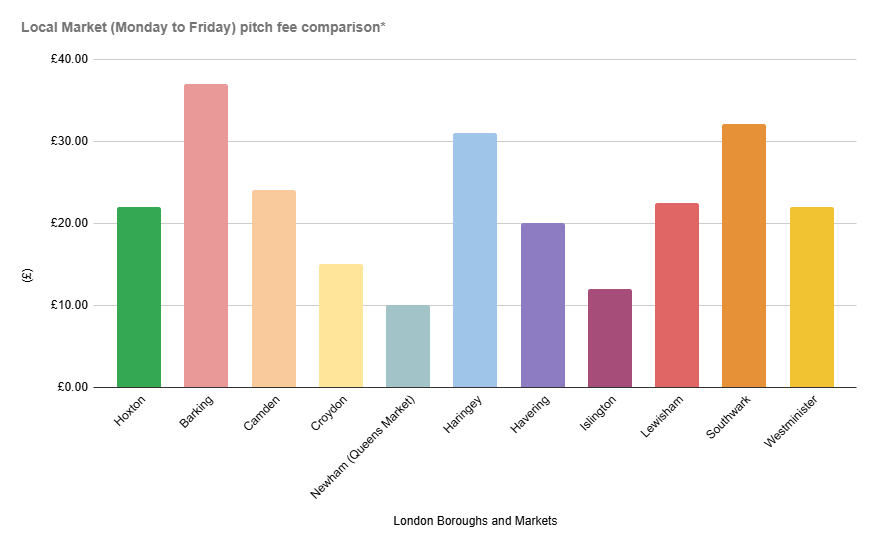
* Average price taken from other London borough markets as there is no specific like for like
Kingsland Market
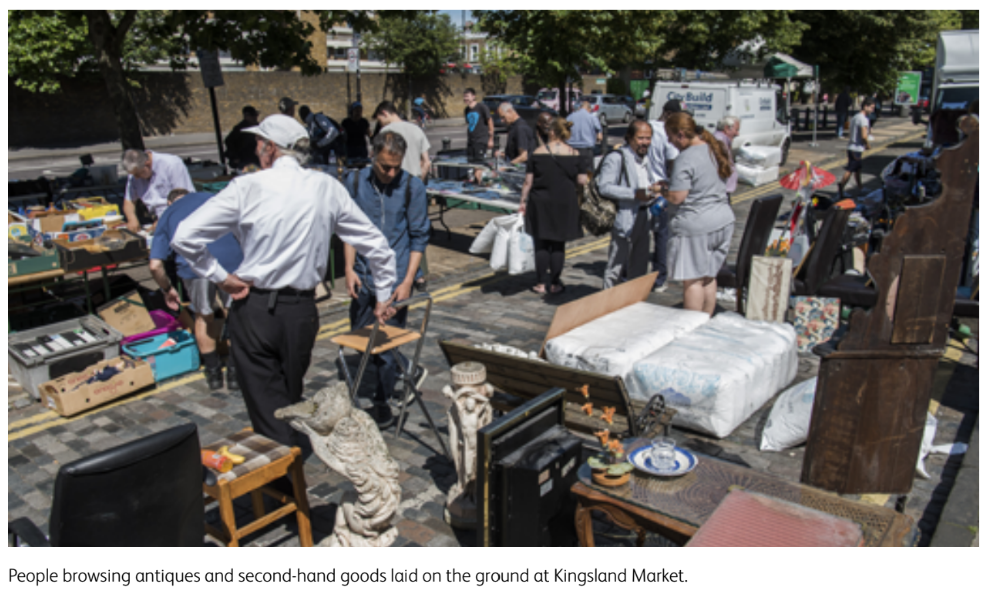 Kingsland Market is developing as a bric-a-brac and pre-loved market, with the ambition of building on its unique character and appeal. While it faces challenges with footfall due to its location, the Council is actively investing in new gazebos and exploring opportunities to attract more visitors — for example, the introduction of a regular car boot sale to bring in new audiences and enhance the overall offer.
Kingsland Market is developing as a bric-a-brac and pre-loved market, with the ambition of building on its unique character and appeal. While it faces challenges with footfall due to its location, the Council is actively investing in new gazebos and exploring opportunities to attract more visitors — for example, the introduction of a regular car boot sale to bring in new audiences and enhance the overall offer.
To ensure the market can grow sustainably and provide a safe and enjoyable trading environment, fees and charges will be adjusted to cover rising waste management costs, inflation, and the additional resources required to manage anti-social behaviour and prevent illegal trading in the area. These adjustments will help secure the long-term future of Kingsland Market and provide a stronger foundation for new initiatives.
The proposed changes are set out in Table 9.
Table 9 - Proposed fees and charges for Kingsland Market
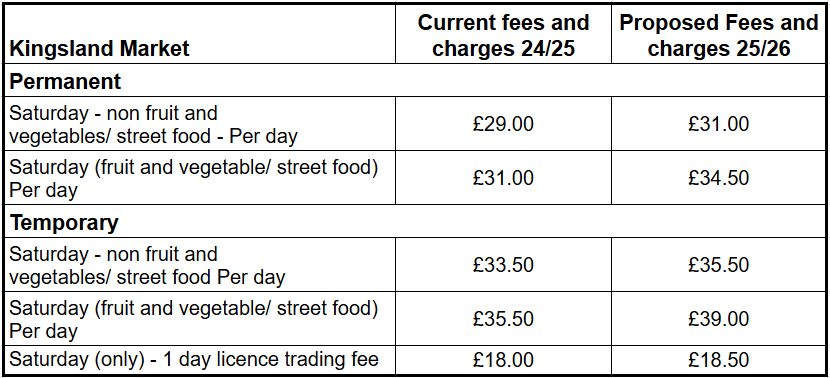
Ridley Road Market
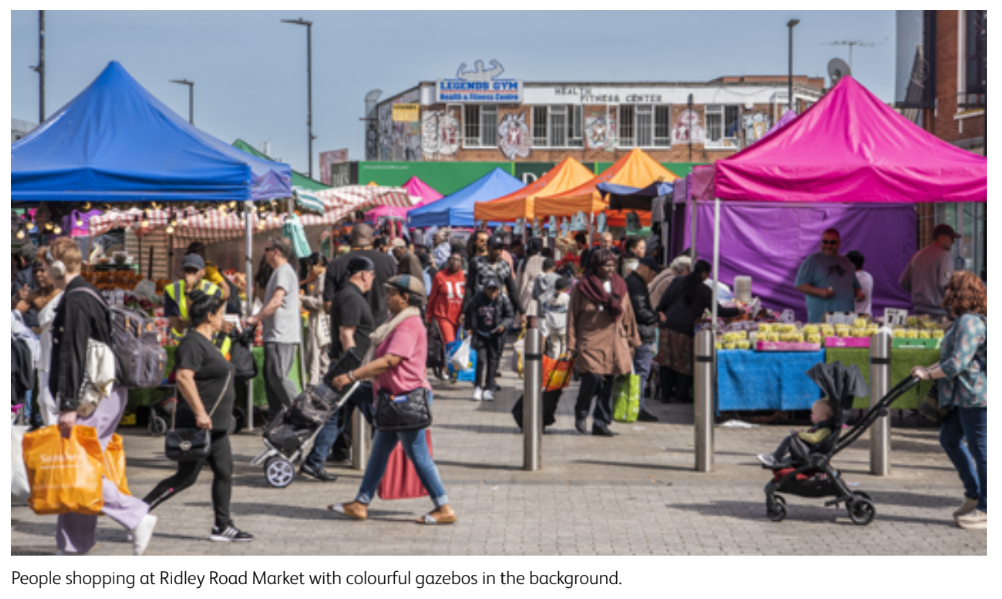
Ridley Road is Hackney’s largest and busiest market, operating six days a week with the highest stall density and visitor footfall. It is a vital community and cultural hub, but also the most resource-intensive market for the Council to manage. The service is currently absorbing additional costs at Ridley Road, including £358,625 for increased waste management and £32k for infrastructure maintenance. These costs reflect both the scale of the operation and the intensive services required to maintain safety, cleanliness, and trading standards.
To ensure the market remains sustainable while keeping fees fair, the following changes are proposed:
- Zone 1 (Kingsland High Street end)
- Currently, permanent traders in Zones 1 and 2 pay the same fees, despite very different trading conditions. To align with temporary trader fees and reflect footfall, Zone 1 will now be priced separately.
- Zone 1 fees will increase by 15–20%, reflecting higher waste management demands, particularly from fruit and vegetable traders, and the premium footfall in this location.
- Legacy licence holders who trade only on Fridays and Saturdays will see a 20% adjustment, as these are the busiest days, requiring additional staffing and cleansing.
- Zones 2 and 3
- For non-fruit, non-vegetable, and street food stalls, fees will increase by 6.7% plus a 2.2% inflation adjustment, rounded to the nearest 50p.
- For fruit, vegetable, and street food stalls, a higher increase is proposed. This reflects the intensive daily waste services required (sweeping, waste removal, and end-of-day deep cleaning), as well as the set-up of branded gazebos funded through the Good Growth programme (2021).
- These revised fees will also support additional enforcement and staffing to tackle anti-social behaviour and illegal trading, ensuring Ridley Road remains safe and welcoming.
- Temporary Traders
- Fees for temporary traders across Zones 1, 2, and 3 will be adjusted in line with the permanent model, with increases weighted towards food and street food to reflect higher waste outputs.
- This harmonisation ensures parity and fairness across licence types.
- Benchmarking
- Benchmarking against comparable London markets shows that, despite these increases, Hackney remains competitively priced. As shown in Chart 5, Ridley Road’s fees are below many equivalent markets when considering its footfall, location, and range of services provided.
Proposed Fees and Charges for Ridley Road Market
The proposed fees and charges for Ridley Road Market have been carefully calculated to ensure that costs are distributed fairly across trading categories, reflecting the different levels of waste generated, the intensity of resources required, and the value of trading locations.
- Zone 1 (Kingsland High Street end):
- Fees in this high-footfall area are proposed to increase by 15–20% for fruit, vegetable, and street food traders, who generate the highest levels of daily waste and require the most intensive cleansing. Legacy licence holders trading only on Fridays and Saturdays will also see a 20% uplift, recognising that these are the busiest trading days, with additional staffing and waste management needed.
- Zones 2 and 3:
- Non-food traders will see smaller increases of 6.7%, rounded to the nearest 50p. Food and street food traders will see higher increases in line with their greater waste outputs and daily cleansing requirements. These increases also support the continued use of branded gazebos, introduced through the Good Growth funding programme, which have improved trading conditions and the visual appeal of the market.
- Temporary traders:
- Adjustments mirror the permanent licence model, with increases proportionate to the level of waste generated. This ensures consistency, fairness, and parity across licence types.
- Service reinvestment:
- The additional income generated will be ringfenced to cover rising waste management costs (which now totals under £358,625 annually) and essential infrastructure maintenance (around £32k). It will also fund the additional enforcement presence required to address anti-social behaviour and illegal trading in the area.
- Benchmarking:
- Independent benchmarking (see Chart 5) shows that, even with these increases, Hackney’s fees remain competitive and below many comparable London markets, particularly when considering the scale of services provided. Traders at Ridley Road continue to benefit from high occupancy, strong footfall, investment in infrastructure, and transparent reinvestment of fees into the service.
Table 10 - Proposed fees and charges for Ridley Road Market
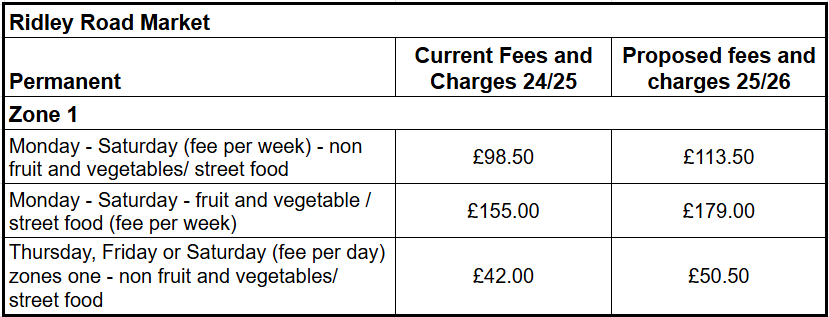


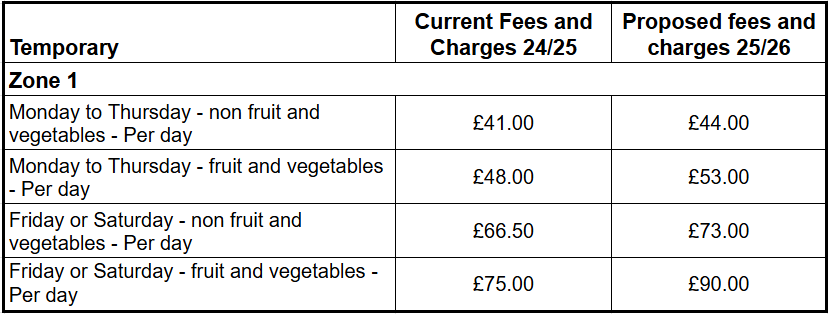

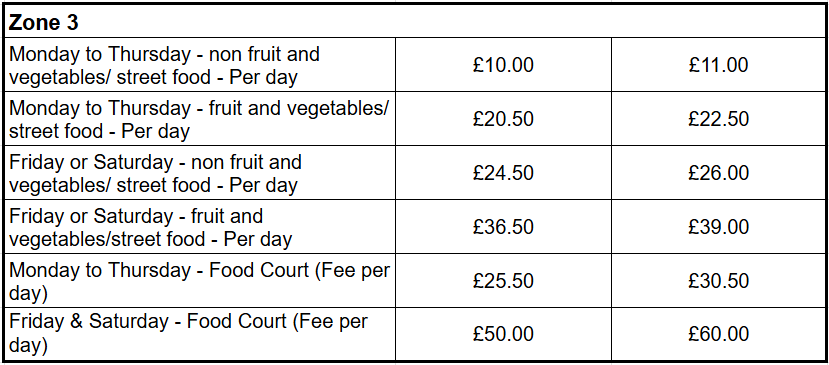
Chart 5 - Benchmarking of Local Markets (Monday to Saturday)
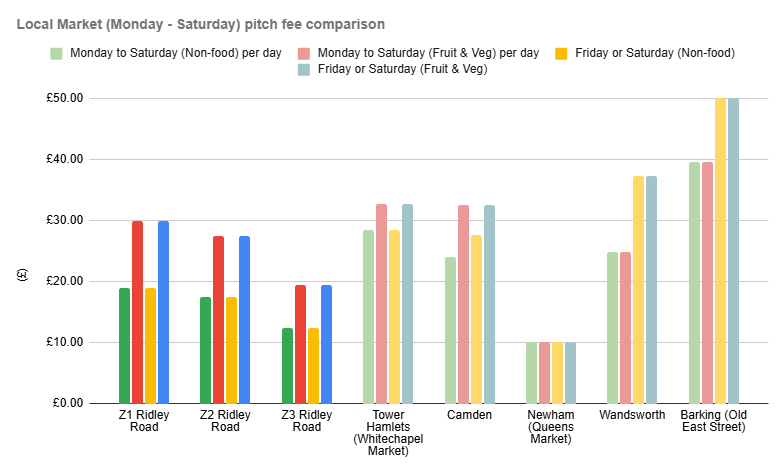
Well Street Market
Well Street Market currently operates primarily as a street trading site, with the traditional market offer reduced to occasional events following its closure prior to the COVID-19 pandemic.
To ensure the site can continue to operate safely and sustainably, proposed fee changes are limited to covering unavoidable cost pressures. These include rising waste management charges, energy costs, and inflationary uplifts, as well as the additional staffing required to address anti-social behaviour and prevent illegal trading.
Importantly, the revised fees are designed to keep trading at Well Street affordable and accessible, while ensuring that the Council can maintain a safe, well-managed, and attractive trading environment. All additional income will be reinvested into the service to support infrastructure, site management, and the local community.
The proposed changes are summarised in Table 11.
Table 11 - Proposed fees and charges for Well Street Market
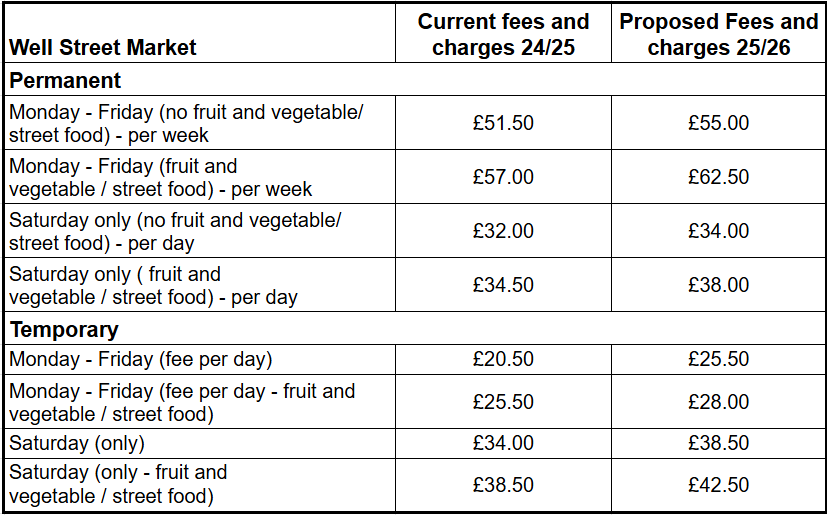
Street trading sites
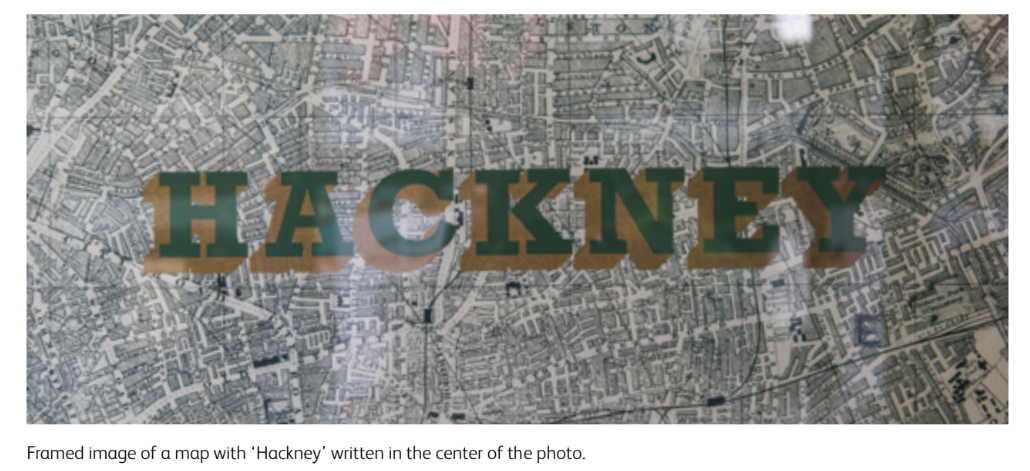
Street trading sites in Hackney are some of the most sought-after trading opportunities, located in prime high-footfall areas such as tube stations, busy high streets, and town centres. These sites play a vital role in ensuring local residents and visitors have access to a wide range of goods and services.
However, the dispersed nature of these locations creates additional operational costs, particularly for waste management, cleansing, and the staff time required to monitor multiple sites across the borough.
To ensure these trading opportunities remain viable and fairly priced:
- Fees for non-fruit, non-vegetable, and non-street food stalls will remain stable, aside from a 6.7% inflationary uplift (rounded to the nearest 50p).
- Fees for fruit, vegetable, and street food stalls will see a higher increase, reflecting the greater costs of managing food-related waste and cleansing requirements.
These proposals are designed to ensure fees continue to reflect the true cost of service delivery, remain competitive with other London boroughs, and support a diverse and vibrant street trading offer across Hackney.
The proposed changes are outlined in Table 12.
Table 12 - Proposed fees and charges for Street trading sites
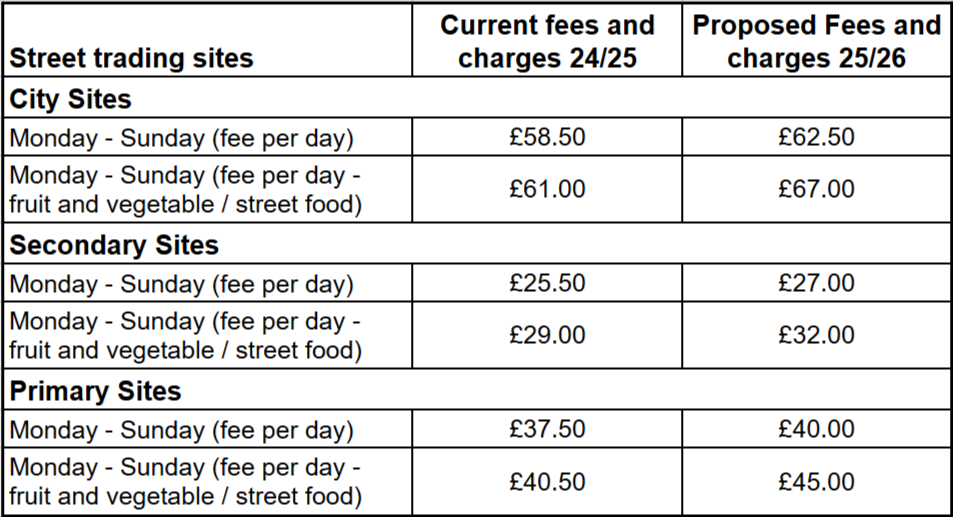
Events
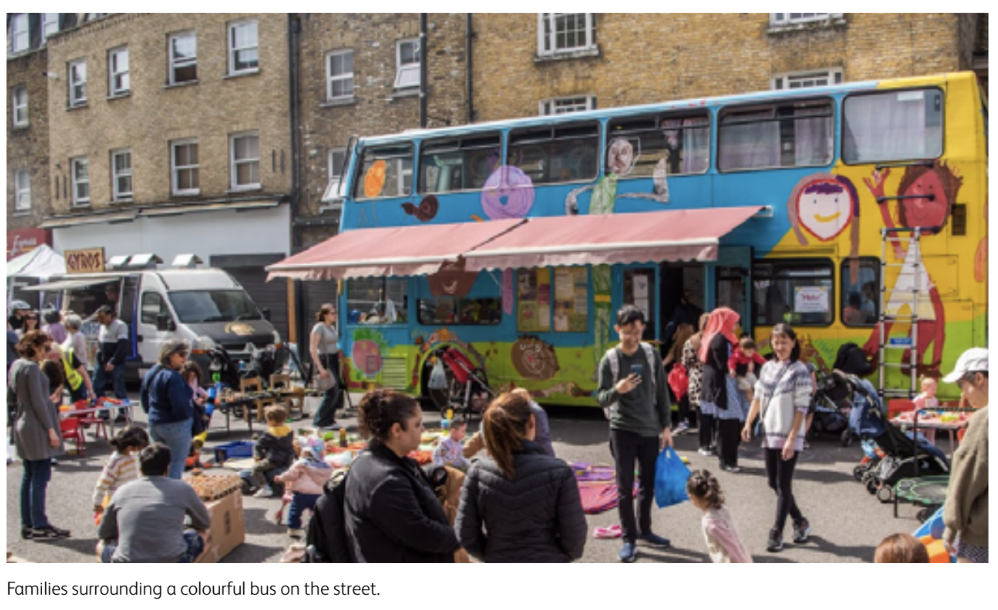 Hackney’s markets are not just places to trade — they are community and cultural hubs. The Council has consistently organised events across multiple market locations to attract footfall, celebrate diversity, and give back to the community. These events also provide traders with valuable opportunities to reach new audiences and grow their businesses.
Hackney’s markets are not just places to trade — they are community and cultural hubs. The Council has consistently organised events across multiple market locations to attract footfall, celebrate diversity, and give back to the community. These events also provide traders with valuable opportunities to reach new audiences and grow their businesses.
Delivering events requires significant investment. Costs include vendor hire, stewarding, physical and digital marketing, waste management, and additional staffing to ensure safe and successful delivery from planning through to execution.
To keep these events sustainable and ensure they continue to support both traders and local communities, fees and charges for stalls at events will increase in line with rising maintenance and waste management costs.
The proposed changes are detailed in Table 13.
Table 13 - Proposed fees and charges for Events and Private operator fees
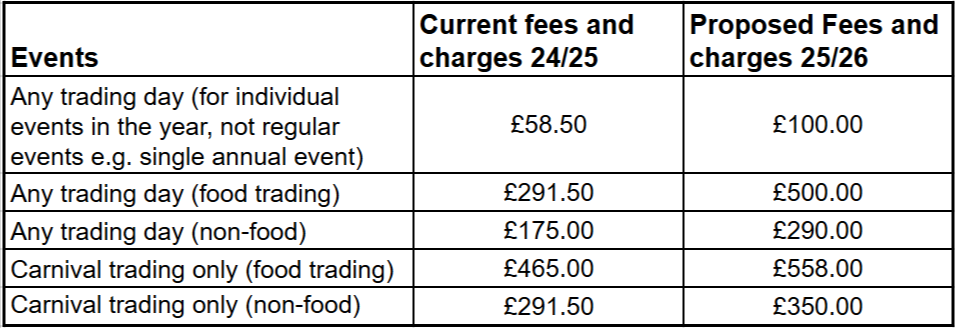
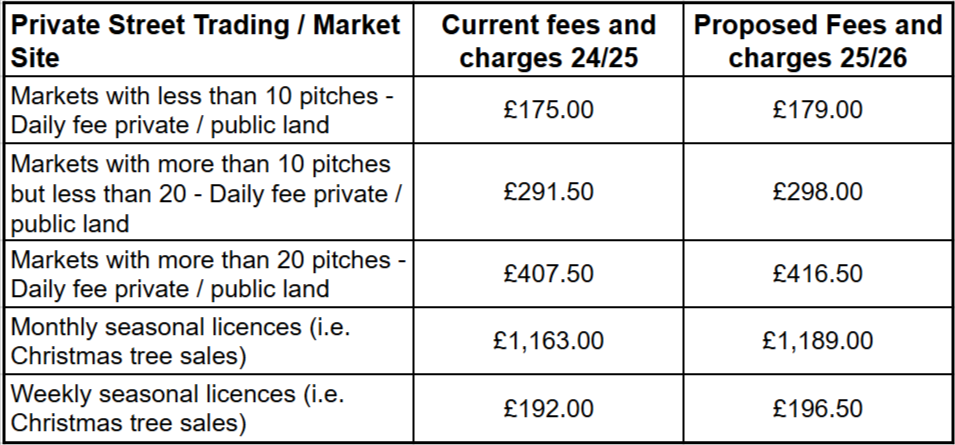
Market and Street Trading Administration Fees
As part of this review, the Council has looked closely at licence application and renewal charges. The current fees do not fully cover the cost of processing applications. Significant officer time is required to carefully review each submission, provide advice, and ensure that all applicants have the best possible chance of trading successfully in Hackney’s markets.
The proposed changes bring fees more closely in line with the true administrative costs of delivering this service, including staffing, processing, and compliance checks. This ensures that resources are allocated more efficiently and that applicants benefit from a fair, transparent, and high-quality service.
Updated charges are outlined in Table 14.
Table 14 - Proposed fees and charges for Market and Street Trading Administration Fees
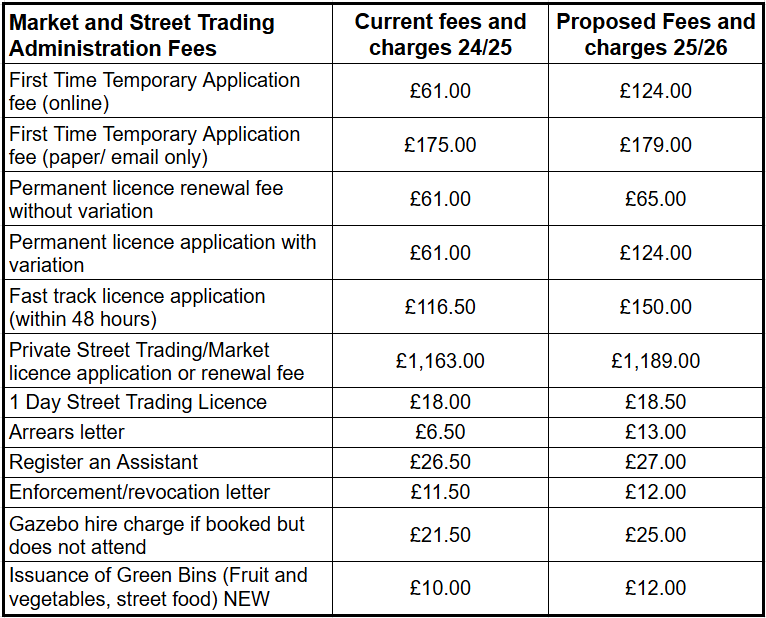
Fees
The Council is pleased to introduce permanent licence options for sites that were previously designated as street trading locations but have now grown into established market operations in their own right. This change reflects the continued success and popularity of Hackney’s markets and supports the long-term stability of traders operating at these locations.
By transitioning these sites into permanent markets, the Council can provide greater certainty for traders, ensure compliance with the London Local Authorities Act 1990, and allow fees to be set on the same transparent, cost-recovery basis as other Hackney markets.
The proposed permanent and temporary fees and charges for these new sites are set out in Table 15 below.
Table 15 - New proposed fees and charges for Leonard Street, Narrow Way, and Old Street
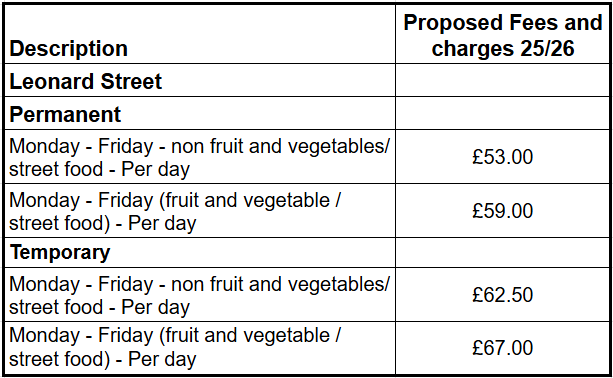
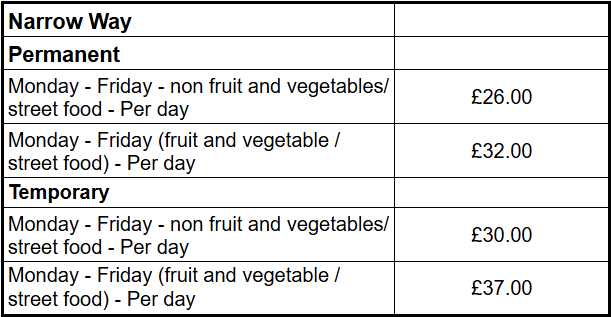
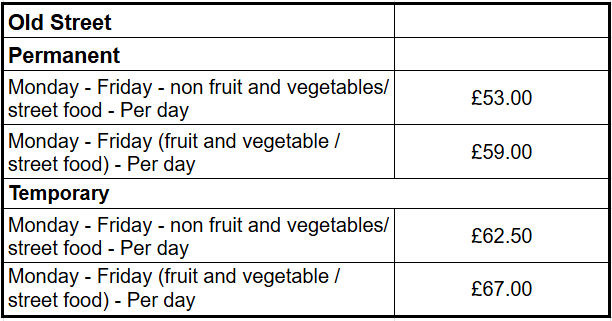
Shop Fronts
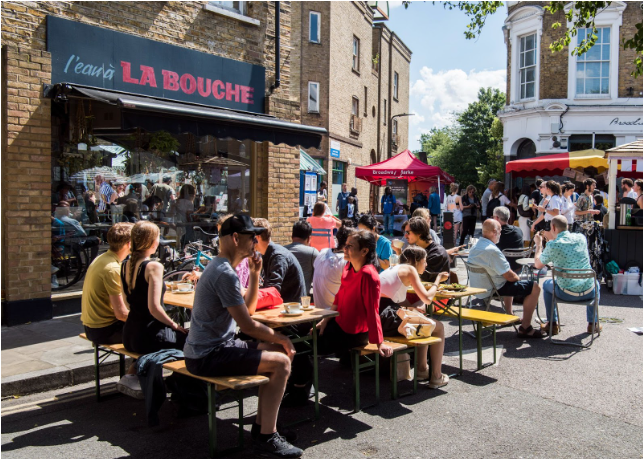
Fees for shop front trading have remained unchanged since 2020, when the Council simplified the three-band charging structure and introduced a fairer model based on the actual space used. In light of rising resources required and service delivery costs, we are now proposing a 6.7% increase (rounded to the nearest 50p).
This increase will ensure that the service remains sustainable while continuing to provide affordable opportunities for local businesses. Importantly, the additional income will also allow the Council to explore further al fresco dining opportunities across the borough, supporting businesses that are otherwise restricted to indoor trading and helping create vibrant, welcoming streets.
The proposed administrative, permanent and temporary shop front licence fees are set out in Table 16 below.
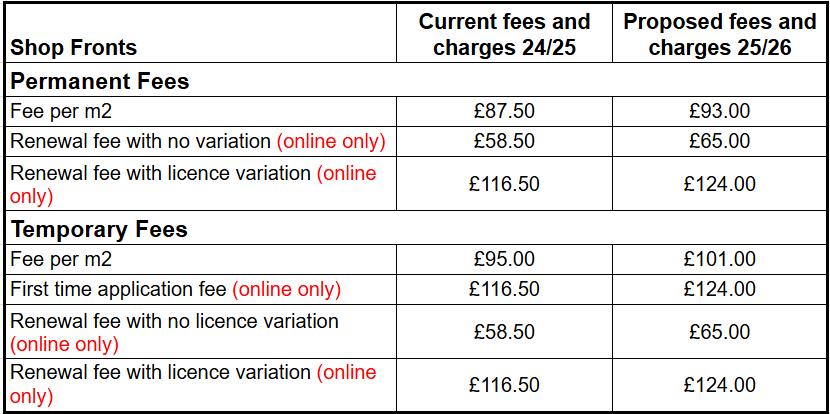
To ensure fairness and transparency, we have benchmarked Hackney’s shop front charges against other London boroughs. Chart 6 below shows that, even with the proposed uplift, Hackney remains one of the most affordable and competitive boroughs in London for shop front trading.
Chart 6 - Shop Front Licence (Monthly) fee comparison
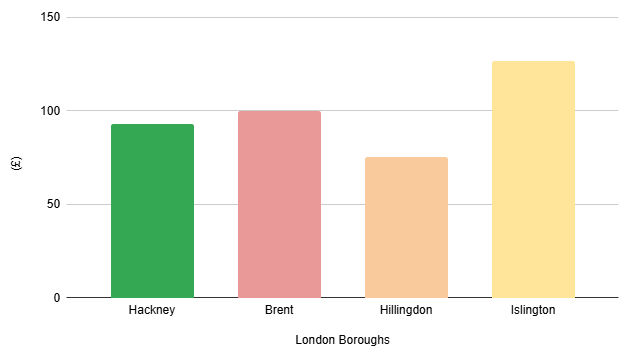
Table 17 evidences that the Council are competitive with their prices even after the proposed price increases:

One Day and 30 day Licence
Currently, the Council charges the same fee for both a one-day licence and a 30-day licence, which has created confusion and concerns about fairness. We are therefore proposing to lower the fee for one-day licences (to reflect shorter use) while raising the 30-day licence fee to more accurately cover the administrative and operational costs involved. This change will make the system clearer and more equitable for businesses.
See Table 18 for details of the proposed changes.

Extended Hours Licence
We have received strong demand from local businesses wishing to extend their shop front trading hours beyond the current regulated time of 22:30. To support businesses, while also recovering the additional costs of enforcement and environmental services, we are proposing the introduction of a flat-rate Extended Hours Licence. This offer would scale according to the number of additional hours requested, providing flexibility for businesses while ensuring costs are proportionately covered. The offering will be subject to meeting a set criteria which includes, but not limited to issues such as noise, anti-social behaviour and licence regulations.
See Table 19 for the proposed Extended hours licence fees:
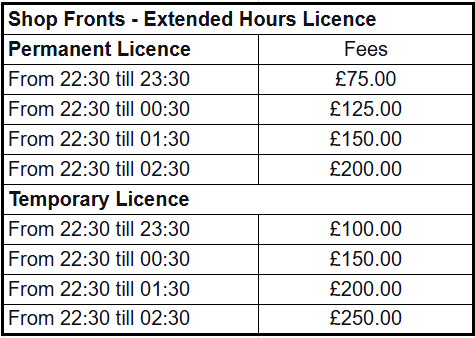
We Want Your Views
Hackney Council is consulting on proposed changes to the fees and charges for markets, shop fronts and street trading.
This consultation is an opportunity for all licence holders, traders, community members and stakeholders to share their views before any final decision is made.
The consultation runs from 4 September to 15 October 2025. You can respond by completing the online survey, attending drop-in sessions, or requesting a paper copy (see below for details)
Your feedback will be used to help shape the final approach to fees and charges for 2025/26 and beyond.
How to have your say
If you would like to discuss the proposals with Council officers before providing your feedback, we will be holding a series of drop-in sessions during the consultation period as follows:
In-person at Ridley Road Market Office:
- Wednesday 17th September 08:30am - 10:00am
- Monday 29th September 5pm - 6:30pm
In-person at Lower Clapton Road Office (Step-free access):
- Wednesday 17th September 4pm - 5:30pm
- Thursday 25th September 5pm - 6:30pm
Online
- Tuesday 16th September 5pm - 6:30pm
- Thursday 18th September 10am - 11:30am
- Thursday 18th September 5pm - 6:30pm
- Friday 26th September 2pm - 3:30pm
Alternatively, physical copies will be available from our Ridley Road office or to complete at our in-person drop-in sessions.
What happens next?
- No final decision has been made. The proposals are at an early stage and may be adjusted based on the feedback received.
- Your input is important. All responses will be analysed and summarised in a report for senior officers and elected members.
- The report will influence the final decision. Feedback may lead to changes in the proposed fees, payment processes, or supporting measures.
- Equalities impacts will be reviewed. Your comments will help update the Equality Impact Assessment (EqIA) and ensure the final decision complies with the Equality Act 2010.
- Transparency and fairness are key. Details on costs, benchmarking, and options have been provided so you can make an informed response.
The feedback you provide will be carefully reviewed, and the proposals may be amended in response to it. A final decision won't be made until consultation responses have been fully considered by senior officers and elected members. After this, a Delegated Powers Report will be published, which will set out the final decision and the timeline for when any new charges will take effect.
Contact us
For further information on these proposals please contact the following:
Markets & Street Trading: marketsservice@hackney.gov.uk
Shop Fronts: shopfronts@hackney.gov.uk
Accessibility statement
If you need any information on this consultation in a different format please email: marketsservice@hackney.gov.uk or shopfronts@hackney.gov.uk
We’ll consider your request and get back to you in five working days.
Interests
- Understanding views


Share
Share on Twitter Share on Facebook